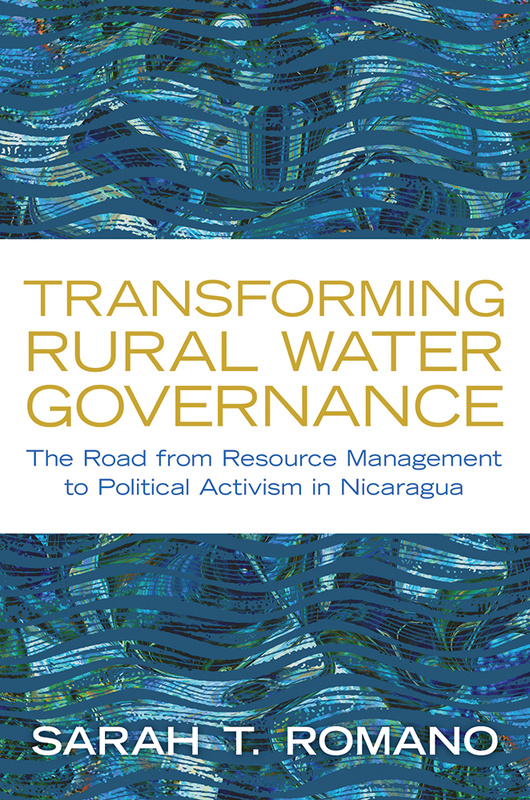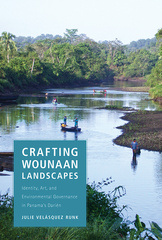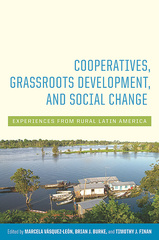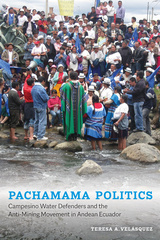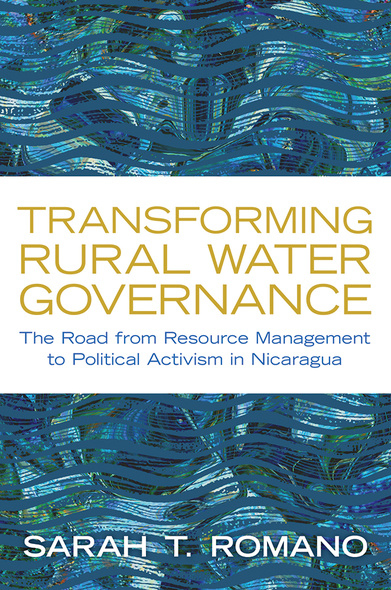
232 pages, 6 x 9
25 b&w illustrations, 4 maps, 3 tables
Hardcover
Release Date:05 Nov 2019
ISBN:9780816538072
Transforming Rural Water Governance
The Road from Resource Management to Political Activism in Nicaragua
The University of Arizona Press
The most acute water crises occur in everyday contexts in impoverished rural and urban areas across the Global South. While they rarely make headlines, these crises, characterized by inequitable access to sufficient and clean water, affect over one billion people globally. What is less known, though, is that millions of these same global citizens are at the forefront of responding to the challenges of water privatization, climate change, deforestation, mega-hydraulic projects, and other threats to accessing water as a critical resource.
In Transforming Rural Water Governance Sarah T. Romano explains the bottom-up development and political impact of community-based water and sanitation committees (CAPS) in Nicaragua. Romano traces the evolution of CAPS from rural resource management associations into a national political force through grassroots organizing and strategic alliances.
Resource management and service provision is inherently political: charging residents fees for service, determining rules for household water shutoffs and reconnections, and negotiating access to water sources with local property owners constitute just a few of the highly political endeavors resource management associations like CAPS undertake as part of their day-to-day work in their communities. Yet, for decades in Nicaragua, this local work did not reflect political activism. In the mid-2000s CAPS’ collective push for social change propelled them onto a national stage and into new roles as they demanded recognition from the government.
Romano argues that the transformation of Nicaragua’s CAPS into political actors is a promising example of the pursuit of sustainable and equitable water governance, particularly in Latin America. Transforming Rural Water Governance demonstrates that when activism informs public policy processes, the outcome is more inclusive governance and the potential for greater social and environmental justice.
In Transforming Rural Water Governance Sarah T. Romano explains the bottom-up development and political impact of community-based water and sanitation committees (CAPS) in Nicaragua. Romano traces the evolution of CAPS from rural resource management associations into a national political force through grassroots organizing and strategic alliances.
Resource management and service provision is inherently political: charging residents fees for service, determining rules for household water shutoffs and reconnections, and negotiating access to water sources with local property owners constitute just a few of the highly political endeavors resource management associations like CAPS undertake as part of their day-to-day work in their communities. Yet, for decades in Nicaragua, this local work did not reflect political activism. In the mid-2000s CAPS’ collective push for social change propelled them onto a national stage and into new roles as they demanded recognition from the government.
Romano argues that the transformation of Nicaragua’s CAPS into political actors is a promising example of the pursuit of sustainable and equitable water governance, particularly in Latin America. Transforming Rural Water Governance demonstrates that when activism informs public policy processes, the outcome is more inclusive governance and the potential for greater social and environmental justice.
Transforming Rural Water Governance addresses the importance of local activism in response to a changing climate and incorporating a new perspective of environmental justice in Nicaragua, where access to clean water plays a much more intrusive role in the minds of its citizens.'—Morgan S. Abbott, Economic Botony
‘This insightful and highly readable book will be useful for anyone interested in water governance, collective action, and social movements.’—Catherine M. Tucker, author of Changing Forests: Collective Action, Common Property, and Coffee in Honduras
‘Romano’s focus on water providers that operate ‘below the radar’ of public policy-making is especially important in the water sector.’—Madeline Baer, author of Stemming the Tide: Human Rights and Water Policy in a Neoliberal World
Sarah T. Romano is an assistant professor of political science and global studies at Lesley University. She is the recipient of several awards, including two Fulbright Scholars Awards.
Preface
Acknowledgments
Abbreviations
Introduction: From Resource Management to Political Activism
1. Rural Water Service from Dictatorship to Democracy
2. “Organic Empowerment” as a Grassroots Source of Legitimacy and Authority
3. The Role of Allies in Bridging Divides
4. Shaping Politics through Discourse
5. Assessing Water Policies in Practice
Conclusion: Confronting and Creating Change from the Grass Roots
Notes
References
Index

